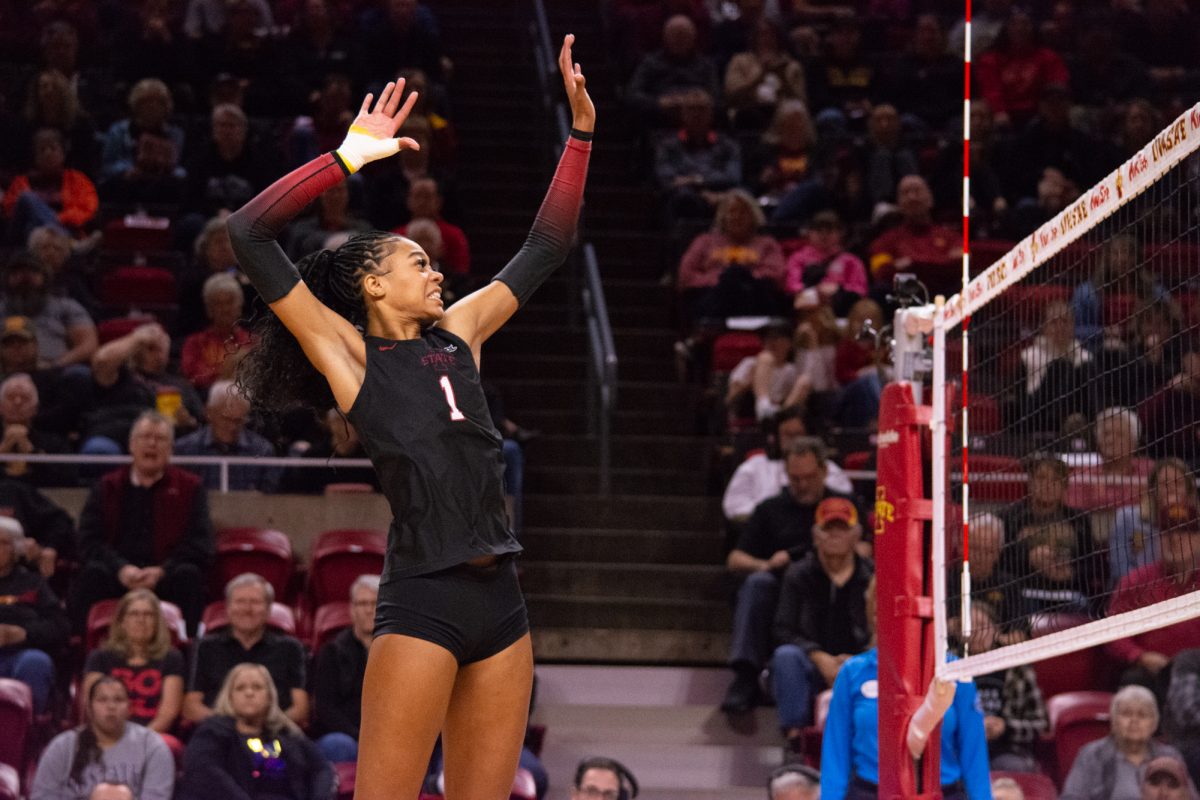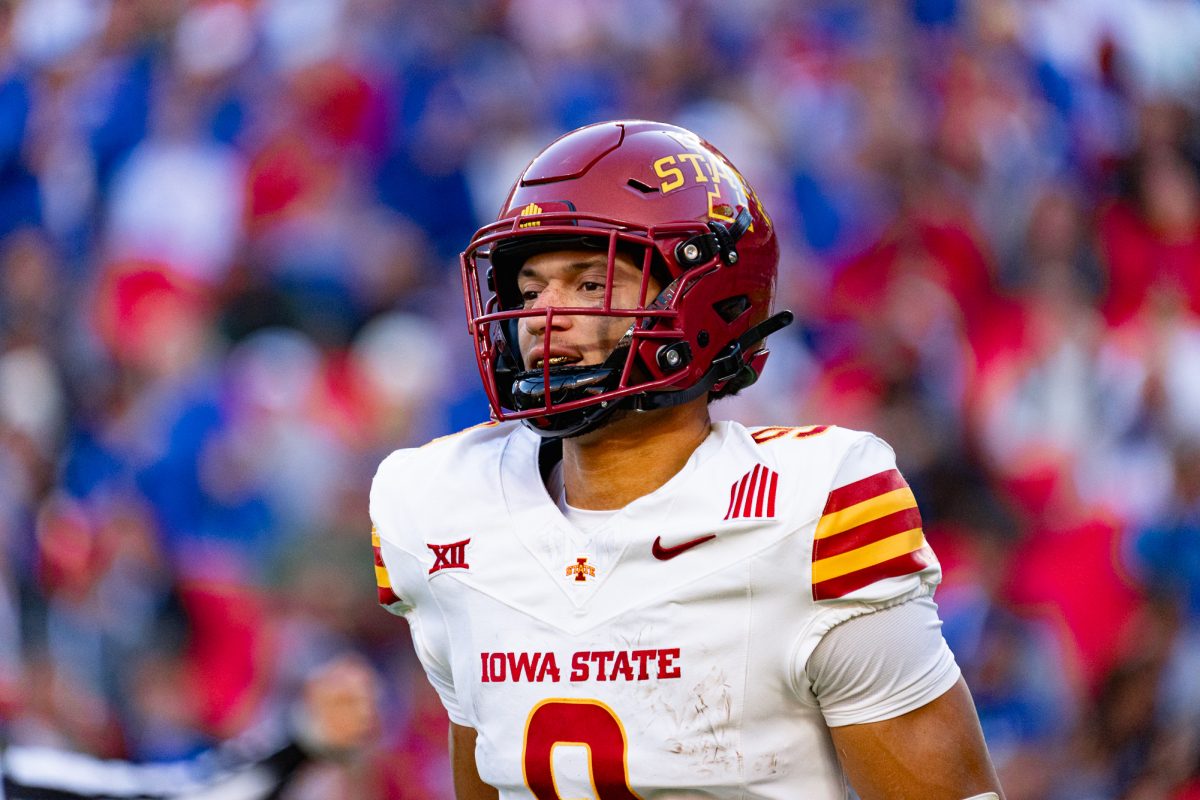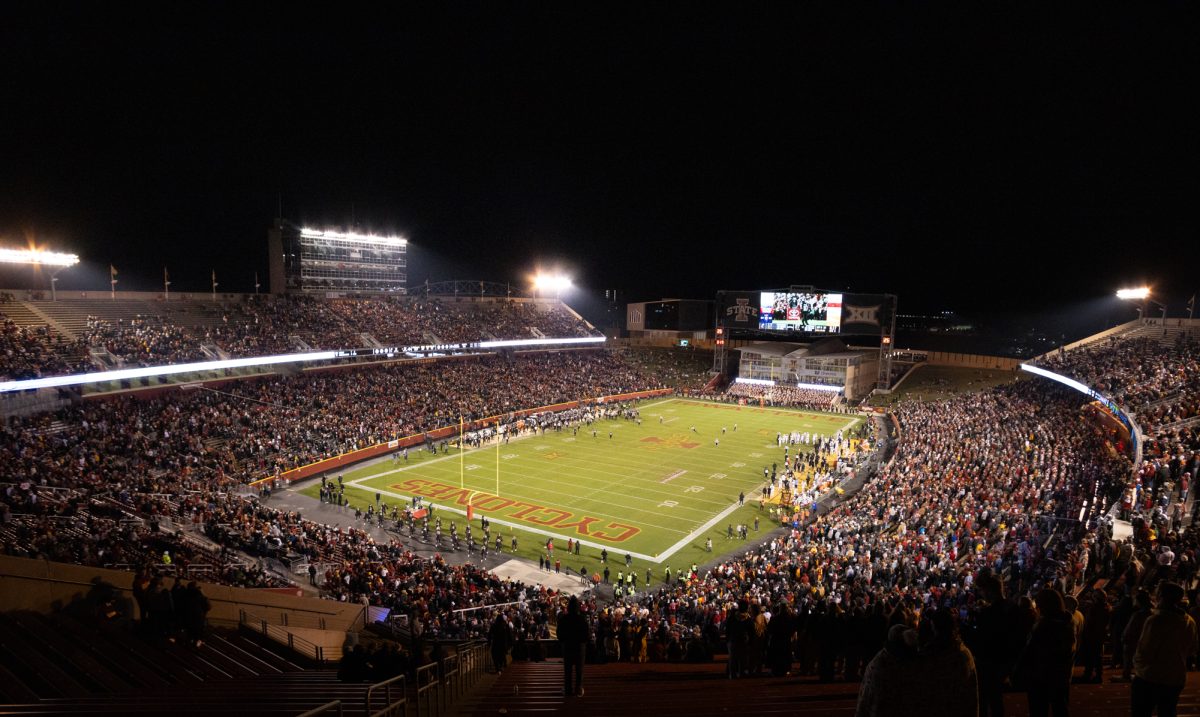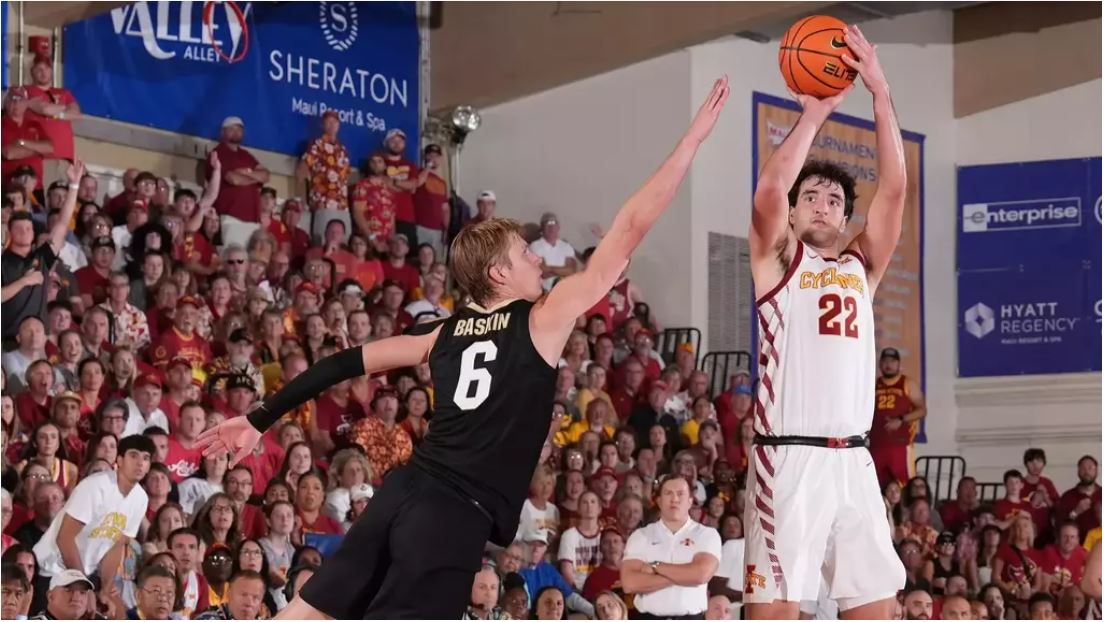COLUMN: Veterans Day was a time for reflection, admiration
November 13, 2003
This week, I wanted to write about something that really mattered: a newsworthy event that affects everyone, and something everyone could relate to.
I understand this is hard to come by on this campus, with everyone having so many different interests and beliefs. So I was not surprised that by Tuesday afternoon, I was still idea-less and stressed out about it.
That is, until I happened to pass through Gold Star Hall on my way out of the Memorial Union. In the middle of the pathway was a wreath, similar to those placed on gravestones. As I made my way through the door, a small white sign caught my eye: “If you are able, please remove your hat.”
It was Veterans Day. It was four o’clock in the afternoon, and I hadn’t realized that it was, in fact, Veterans Day until then. As a person who considers herself rather informed, I felt like an ass. My sentiment was further worsened when I thought about why Veterans Day exists.
Armistice Day officially received its name in 1926 to celebrate the end of World War I, the first modern global conflict. After a few modifications after World War II and the Vietnam War, it is now called Veterans Day, celebrated every Nov. 11, to “honor America’s veterans for their patriotism, love of country, and willingness to serve and sacrifice for the common good.”
I don’t think some people realize the chief reason Nov. 11 is declared a holiday, why government offices are closed or why people wear red poppies on this day — it is to remember all veterans.
I started thinking about the sacrifices millions of soldiers — almost 41.2 million to be exact — have made for my freedom. I thought about how brave and selfless these people are. Then I remembered that one of these people is very close to me; in fact, he’s my dad.
So to make up for my disregard of this special day, and to use this day for what it is actually in existence for, here is my salute to my favorite veteran. Through the telling of this story, I would like people to realize how important veterans are to our country, thus explaining why this day is significant. And I know it is two days late, but it’s better late than never.
My father, Dwight Pierson, served in the Vietnam War from 1969 to 1973. He was one of the last of his generation to be drafted, and served for the United States Navy doing Naval Intelligence.
My father traveled all over the world, mainly to Europe, but also Africa, Asia, the Black Seas and finally to the Bahamas. His job was to listen to enemy radio frequencies and intercept and decipher enemy messages. In his last year of service, he tracked submarines and other sea vessels.
Dad said the hardest part about the job was the stress level and the high-pressure working conditions. Often, he had seconds to make a decision, a decision which could potentially put the nation on high alert. His work was mostly individual, and the more he worked, the more proficient he got at encoding (which would explain why I still can’t tell him a lie).
Overall, my father felt he had a positive experience serving. “I’m glad I got to serve my country … I’ve paid my dues,” he said. He also said he has gained a valuable knowledge and appreciation of American government policies and democracy, and would do it again if given the opportunity.
Dad thought the hardest thing about serving was being away from friends, family and his career as a teacher. But upon returning, my father found himself more focused, which inspired him to enroll in graduate school. He also learned how to appreciate and be more respectful of things he had taken advantage of in the past.
Every Veterans Day, my father plans and attends a Veterans Day program at Forest City High School, where he has worked for the last eight years.
This is only one veteran’s story. I am sure there are millions of others. After talking to my dad, I have now gained more admiration and respect for the men and women who give up their freedom so I can have mine.
We should use this day as a time to reflect upon the importance of these people.





